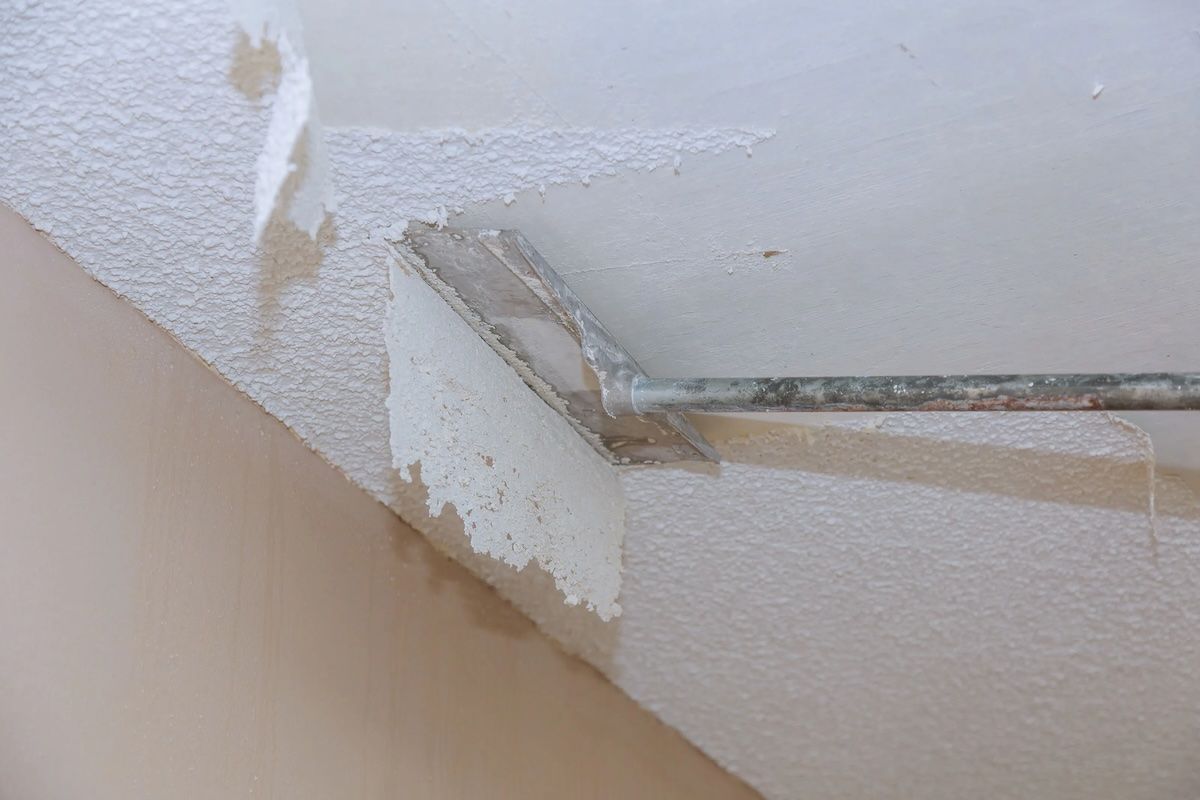How to Negotiate the Best Deal on Your Home
>>See Why Clients Love FastExpert Agents<<

Negotiating the best deal when buying a home is more than just haggling over price. It’s about understanding the market, strengthening your offer, and using essential negotiation tools to your advantage.
Whether the market favors buyers or sellers, a strategic approach can help you get the best deal possible.
In this guide, we’ll explore critical factors such as market dynamics, preapproval for a mortgage, leveraging home inspections, negotiating beyond price, flexibility in closing, and fostering a win-win mindset.
Discover how to come out on top with your home purchase with these tools:
- How do you assess whether the market favors buyers or sellers and tailor your offer accordingly?
- Why mortgage preapproval is essential for gaining leverage in negotiations.
- Use home inspections, closing costs, and other factors to maximize your deal.
As a top-producing Massachusetts Realtor for nearly forty years, I have learned what it takes to create an attractive offer that a seller will love. One of the most vital aspects of being a real estate agent is having a pulse on the local real estate market. Without in-depth knowledge, it’s hard to know what it will take to put a home under contract.
Let’s explore each of these in more detail.

1. Understand the Market: Is It a Buyer’s or Seller’s Market?
Understanding the market is the first step in negotiation because it determines your leverage. Real estate markets fluctuate, and knowing whether you’re in a buyer’s or seller’s market helps you adjust your approach and expectations.
You can’t write a winning offer without having a firm grasp of what’s happening on the ground.
Buyer’s Market
In a buyer’s market, more homes are available than buyers. Homes often stay on the market longer, and sellers may reduce prices or offer incentives to attract buyers. This situation gives you leverage because sellers are more motivated to negotiate a deal on the home.
You have the luxury of taking your time, making lower offers, and requesting more concessions, like asking for repairs or including appliances in the sale.
Seller’s Market
In a seller’s market, homes sell quickly, often with multiple offers. When demand exceeds supply, sellers have the upper hand. Buyers may need to compete by offering above the asking price or waiving contingencies to make their offers stand out.
In this situation, your focus should be on making a clean, competitive offer, avoiding aggressive demands that might lead the seller to reject your bid in favor of others.
How to Assess the Market:
- Check inventory levels: Look at the number of homes on the market. More homes typically mean a buyer’s market, while fewer homes mean a seller’s market.
- Study recent sales: Check whether homes sell above, at, or below the asking price. Consistently high sales above the asking price indicate a seller’s market.
- Average time on the market: In a buyer’s market, homes typically stay listed longer, whereas in a seller’s market, homes may sell within days or weeks.
- Time of year could matter: Sellers might be forced to be more flexible when selling at the worst time.
Understanding the current market gives you a clear sense of whether you can push for more concessions or need to focus on making a more substantial initial offer.

2. Get Preapproved for a Mortgage
Getting pre-approved for a mortgage is one of the most critical steps before entering negotiations. It shows sellers that you’re serious and financially capable of buying their home, which can significantly strengthen your position.
Many agents and sellers won’t even consider accepting an offer without preapproval.
What is Preapproval?
Preapproval is when a lender evaluates your finances and gives you a conditional commitment for a specific loan amount. This process involves reviewing your credit score, income, employment history, and debt levels. Preapproval is more formal and in-depth than prequalification; sellers see preapproved buyers as lower risk.
Why Preapproval Matters:
- It demonstrates seriousness: Sellers are more likely to accept preapproved buyers’ offers because it reduces financing uncertainty.
- Gives you a budget: Knowing your exact budget helps you avoid wasting time on homes outside your price range and allows you to negotiate a deal on the home confidently.
- Speeds up the process: Preapproved buyers can close more quickly, which is appealing to sellers, especially in competitive markets.
How to Get Preapproved:
- Gather documents, including recent pay stubs, tax returns, W-2 forms, bank statements, and information on any outstanding debt.
- Apply with a lender: Submit your documents to a lender to begin the pre-approval process. You’ll receive a letter specifying the loan amount for which you’re approved.
- Stay financially stable: Avoid making large purchases, changing jobs, or taking on new debt before closing, as this can affect your approval status.
By getting pre-approved, you’re showing sellers that you’re ready to move forward, giving you an edge over other buyers who may not be as prepared.

3. Use the Home Inspection as a Negotiation Tool
The home inspection is one of the most effective tools in your negotiation toolbox. It provides detailed information about the property’s condition and can reveal issues that weren’t apparent during the initial viewing. Depending on the inspection, you can negotiate for repairs, a lower price, or other concessions.
However, it would help if you remembered that the market will dictate your leverage. In a seller’s market like the last several years, you may not be able to negotiate much.
Why the Inspection Matters:
A home inspection typically covers structural components, such as the roof, electrical systems, plumbing, and HVAC systems. It helps you understand the property’s condition and avoid potential surprises. Issues uncovered during the inspection give you leverage in negotiations because many buyers hesitate to purchase a home requiring significant repairs.
How to Use the Inspection for Negotiation:
- Request repairs: If the inspection reveals problems, you can ask the seller to make repairs before closing. For example, you can request the seller to fix the roof or offer a credit if the roof needs repairs.
- Ask for a price reduction: If significant repairs are needed, you might negotiate a lower price instead of having the seller fix the issues. This gives you control over how and when repairs are made.
- Request credits for closing costs: Instead of repairs, you can ask the seller to credit you money at closing, which can help cover the cost of repairs after you move in.
Inspection Negotiation Strategies:
- I always recommend that my clients focus on critical issues, such as structural problems or expensive repairs, rather than minor cosmetic issues.
- Be prepared to walk away if the seller is unwilling to address significant concerns. Knowing you have other options can give you more confidence in negotiations.
Using the inspection results as leverage, you can save thousands of dollars or ensure the property is in better condition when you move in. Even a new construction home inspection can be valuable.
>>MORE: Finding local agents is easy with FastExpert

4. Negotiate Beyond Price
Negotiating the price of the home is just one aspect of the overall deal. There are several other areas where you can negotiate to add value or reduce costs, making your offer more appealing or ensuring you get more for your money.
Covering Closing Costs:
Closing costs include fees for the loan, title insurance, and taxes, which can add up to 2-5% of the home’s purchase price. Sometimes, you can ask the seller to contribute toward these costs, particularly in a buyer’s market or if the seller is eager to close the deal. By reducing your out-of-pocket expenses for closing, you’ll have more financial flexibility when you move in.
Requesting Appliances:
If the seller plans to move out and doesn’t need certain appliances, like a refrigerator or washer and dryer, you can ask them to leave those behind as part of the deal. This saves you the hassle and cost of purchasing new appliances after moving in. Many first-time sellers may be willing to include these items to sweeten the deal, especially if it helps close the sale faster.
I have also negotiated expensive window treatments to be left behind.
Home Warranty:
A home warranty can offer protection against the cost of significant repairs during your first year in the home. Negotiating for the seller to provide a home warranty gives you peace of mind and reduces the risk of unexpected repair expenses.
For example, if the HVAC system fails shortly after you move in, a home warranty could cover the cost of repair or replacement.
Key Negotiation Points Beyond Price:
- Closing costs: Ask the seller to cover some or all closing costs.
- Appliances: Request specific appliances to be left behind.
- Home warranty: Ask the seller for a home warranty for your first year.
Negotiating for these additional items can save you money upfront and improve your overall deal, primarily if the seller is motivated to close quickly.
>>Got Questions?Ask a Licensed Real Estate Agent for Advice

5. Be Flexible with the Closing Date
Flexibility in the closing timing can give you a competitive edge in negotiations. Every seller has unique needs when it comes to moving, and aligning with their schedule can make your offer more attractive.
Quick Closing:
If the seller needs to move quickly—perhaps due to a job relocation or because they’ve already purchased a new home—they may be willing to accept a lower offer in exchange for a fast closing. Offering to close within a short time frame, typically 30 days or less, can be an appealing incentive.
Delayed Closing:
Alternatively, if the seller needs more time to move, you can offer to delay the closing date to give them the flexibility they need. This could allow you to ask for concessions elsewhere, such as a price reduction or additional repairs. In this scenario, the seller is often more willing to accommodate requests because you’ve made the process more convenient for them.
Ways to Use Closing Flexibility:
- Offer a quick closing: Propose a fast close if the seller needs to move out quickly.
- Allow extra time: Be flexible with the move-out date to give the seller more time if needed.
Adapting your timeline to the seller’s needs shows that you’re willing to work with them, which can lead to better terms and a smoother negotiation process.

6. Adopt a Win-Win Approach to Negotiation
I emphasize to my clients that the best negotiations are those in which both parties feel they’ve gained something valuable. Instead of focusing solely on your needs, try understanding what the seller wants in the deal. This win-win approach can lead to smoother negotiations, faster agreements, and better outcomes for both parties.
Understand the Seller’s Priorities:
Sellers are motivated by different factors. Some may want to close quickly, while others prioritize getting the highest price. Others may be more concerned about minimizing the repairs they must complete before moving out. By understanding the seller’s priorities, you can tailor your offer to meet their needs while still achieving your goals.
Tailor Your Offer Accordingly:
If you know the seller values speed, offer a fast closing date. If they’re concerned about repairs, consider offering to take the property as-is in exchange for a price reduction. Showing flexibility in areas that matter to the seller can increase the chances of accepting your offer, even if you ask for other concessions.
Keep Communication Open:
A successful negotiation is often built on clear and respectful communication. Stay open to discussing different options, ask questions about what’s essential to the seller, and be willing to adjust your offer to accommodate their needs where possible. This collaborative approach helps build trust and can lead to more favorable outcomes.
Examples of Win-Win Strategies:
- Quick sale: If the seller needs to move fast, offer a quick closing in exchange for a price reduction.
- Flexibility on repairs: If the seller prefers not to make repairs, offer to handle them after closing in exchange for a credit.
- Meet in the middle: If price negotiations stall, propose a meeting halfway to keep the deal moving forward.
Focusing on creating a win-win situation is a better way to secure a deal that benefits both parties.
Conclusion
If you have an excellent real estate agent, you should lean on them for advice. They are there to help. Follow their guidance to put yourself in the best position to become a homeowner!





